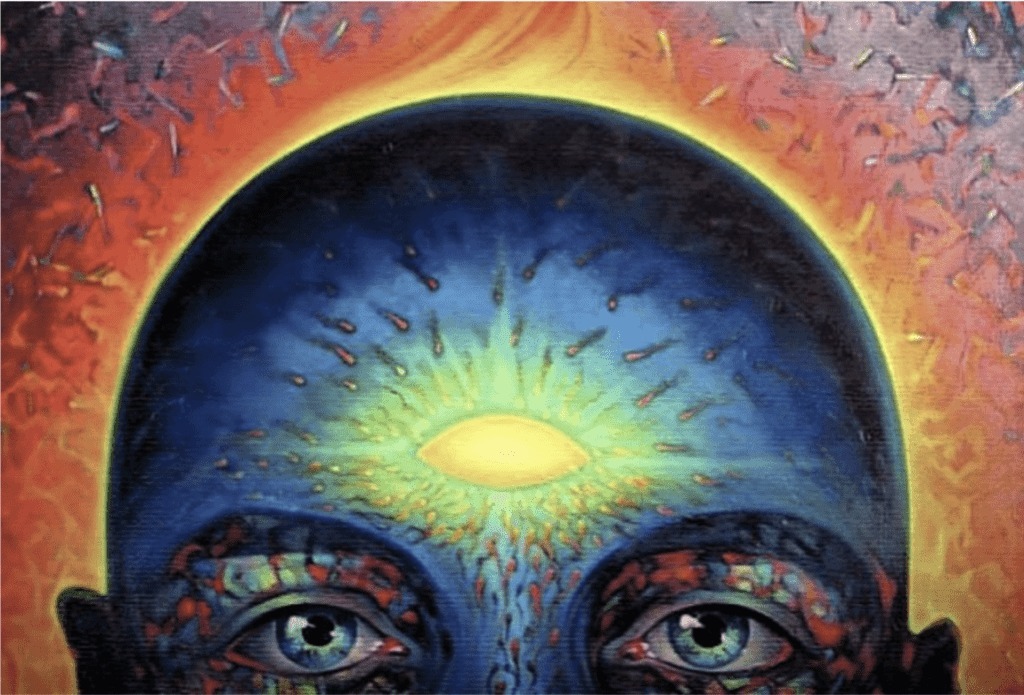
“I believe in intuitions and inspirations…I sometimes FEEL that I am right. I do not KNOW that I am.”
― Albert Einstein
The process with which one abruptly arrives at a promising question or an answer is a
mystery that has long bewildered great minds. To truly understand it we need to understand the process of scientific discovery, and the line which differentiates Intuitive thinking from analytical reasoning. Is the ‘eureka’ moment just convenient serendipity, or the result of a continuous analytical process?
The process of Scientific discovery has a definitive starting point and an endpoint, this is something most of us would agree with. First, there is a hypothesis formed based on a set of ideas that comes to the mind and then at the end theory is proven right with the help of evidence. But the journey between the two points is what brings about this debate about which way trumps which one. This particularly doesn’t mean both Intuitive thinking and analytical reasoning cannot co-exist. In my opinion, they have to work in perfect symphony to pave way for scientific discovery, as without analytical reasoning we can’t prove the practicality of the thesis and without intuitive thinking, we are bound within the constricts of our reality not furthering scientific discovery. However, this piece of writing is about proving that how intuitive thinking does the latter and is the bigger if not the biggest factor in the process of scientific discovery.
Analytical reasoning in Layman terms is the act of recognizing and determining the meaning of patterns in a variety of information, this is the act of determining what lies ahead based on existing knowledge.
The foundations of its understanding are limited to the understanding of existing knowledge thus if existing knowledge cant explain the thesis at hand it is outright claimed wrong. Is this justifiable knowing that there is so much we don’t know? does human dependence on analytical reasoning limit scientific advancement or at least slow it down? These are the questions we need to ask ourselves to truly understand the importance of Analytical reasoning in the process of scientific discovery.
Intuitive thinking on the other hand is very different from Analytical reasoning. Unlike Analytical reasoning which one can use at command Intuitive thinking only comes about in “moments of
inspiration”.The great scientist Dmitri Mendeleev, the creator of the modern periodic table, is a textbook example to provide evidence for this claim. After all, the final design of the periodic table we know today puzzled him for the whole night on the day he was about to discover it, only to strike him while he was Sleeping! The subconscious mind in its mysterious ways can generate neural connections which could alleviate one’s understanding of an idea. But how can one understand a concept better without even actively paying attention to it? To answer that question we should surprisingly explore the worlds of spirituality. This may seem unconventional but as part of my “aha ” moment, I was able to draw parallels between the worlds of spirituality and scientific discovery.
Amidst the deep corners of the Himalayas for centuries, there have been myths of the immortal ‘’Sadhus” who have been enlightened with immense knowledge of the “unknown ” as their minds astral travel beyond the known three-dimensional constructs of our reality to mull over a fabric of life which involves
Unforeseeable dimensions such as time. In other words, they have opened their third eye. Coincidently recent scientific discoveries state that intuitive thinking occurs in a region close to the pineal gland. To put it simply, it lines up with the middle of your forehead, between your eyebrows, which happens to be where the myths say the third eye to be in! Two different points in history centuries apart, how did the sadhus know the origin of Intuitive thinking without the methods of today? The very fact that our ancestors knew things that were “proven” right by analytical reasoning millenniums later without actually analysing anything or having the tools to do so might as well be the most important aspect to prove the topic credibility. The third eye is just one of many such discoveries which were made centuries before they would have been proved right by actual evidence.
If we look at theories like that of Einstein’s theory of general relativity which talks about the way light could be expected to bend around supermassive black holes. , or Erwin Schrödinger’s concept called “Schrodinger’s cat” which talks about quantum superposition, we can see that both of these were a product of analytical reasoning which were then fueled by Intuitive thinking. It was not until more than half a century after Einstein predicted the way light would bend around a massive black hole that it was proven right. Would they have predicted such a thing if they were only bound to analytical thinking? bound with the abilities and understanding of science at their point of time? The answer is no, they won’t have been able to achieve such feats. This is one of many such examples that we can see that intuitive thinking has been a benefactor in the process of scientific discovery. Florence Scovel Shinn, an American artist turned metaphysical writer rightly said that “Intuition is a spiritual faculty and does not explain, but simply points the way.” If it weren’t for intuitive thinking, scientific discovery would possibly not be directed forward to pave the way for technological advancements or the safekeeping of mankind.
In the English language, there is a famous analogy used in children’s books called “frog in a pond”.There is a tadpole that grows to be a frog in a pond, for the tadpole its entire world has been its pond but does that mean there is nothing more for the frog in the rest of the world?
How can the frogs, us humans, discover new things if we keep looking within our pond? This is why I believe that intuitive thinking, in its ways, trumps analytical reasoning in the process of scientific discovery. Analytical reasoning as said before is the act of determining what lies ahead based on existing knowledge but how can one prove something right with information if the information does not even exist in the eyes of the entity analysing it.The world has a great has a long way to go this begs the question that how can we find something out of our understanding if we try to look for it within our understanding.To reach the boundaries of current human understanding we do need analytical reasoning but the way to tip over past it is intuitive thinking
Bibliography
- “Intuition Is the Highest Form of Intelligence.” Bruce Kasanoff, kasanoff.com/intuition-is-the-highest-form-of-intelligence.
- Jacob. “The 4 Types of Intuitive Thinking.” Exploring Your Mind, 29 July 2018, exploringyourmind.com/the-4-types-of-intuitive-thinking/.
- Kasanoff, Bruce. “Intuition Is the Highest Form of Intelligence.” Forbes, Forbes Magazine, 3 Jan. 2018, www.forbes.com/sites/brucekasanoff/2017/02/21/intuition-is-the-highest-form-of-intellige nce/?sh=5bc3f71a3860.
- Cooper, Belle Beth. “How Our Brains Work When We Are Creative: The Science of Great Ideas.” Resources, March 22, 2016. https://buffer.com/resources/how-to-produce-more-great-ideas-according-to-science.
- “How Does Our Brain Form Creative and Original Ideas?” ScienceDaily. ScienceDaily, November 19, 2015. https://www.sciencedaily.com/releases/2015/11/151119104105.htm.
- https://www.nbcnews.com/mach/science/einstein-showed-newton-was-wrong-about-grav
ity-now-scientists-are-ncna1038671. - Mrozek, Vardon, and Thomas. “Brain Temperature: Physiology and Pathophysiology
after Brain Injury.” Anesthesiology Research and Practice. Hindawi, December 26, 2012. https://www.hindawi.com/journals/arp/2012/989487/#:~:targetText=In humans, the centre of,it is also more variable. - “Read ‘How People Learn: Brain, Mind, Experience, and School: Expanded Edition’ at NAP.edu.” National Academies Press: OpenBook. Accessed November 12, 2019. https://www.nap.edu/read/9853/chapter/8#115.
- Hendricks, Scotty. “Seven Thought Experiments That Will Make You Question Everything.” Big Think. Big Think, April 29, 2019. https://bigthink.com/scotty-hendricks/seven-thought-experiments-thatll-make-you-questio n-everything.
- “Brain Wiring.” Psychology Today. Sussex Publishers. Accessed November 12, 2019. https://www.psychologytoday.com/us/blog/the-new-brain/201106/brain-wiring.
- Dietrich, Arne, and Arne is a professor of psychology at the American University of Beirut. “Where Does ‘Creativity’ Happen in Your Brain?” The Guardian. Guardian News and Media, December 28, 2015. https://www.theguardian.com/education/2015/dec/28/where-does-creativity-happen-in-yo ur-brain.
- “How Does Our Brain Form Creative and Original Ideas?” ScienceDaily. ScienceDaily, November 19, 2015. https://www.sciencedaily.com/releases/2015/11/151119104105.htm.
- Michalko, Michael. “How Your Mind Creates Ideas.” Creative Thinking Articles and Techniques by Michael Michalko, March 3, 2017. http://creativethinking.net/how-your-mind-creates-ideas/#sthash.q7VQsDcH.8m9zar18.d pbs.
- Magistretti, Pierre J., and Igor Allaman. “A Cellular Perspective on Brain Energy Metabolism and Functional Imaging.” Neuron. Cell Press, May 20, 2015. https://www.sciencedirect.com/science/article/pii/S0896627315002597.
- Treffert, Darold. “Genetic Memory: How We Know Things We Never Learned.” Scientific American Blog Network, January 28, 2015. https://blogs.scientificamerican.com/guest-blog/genetic-memory-how-we-know-things-we -never-learned1/.
- Mulukom, Valerie van. “The Science behind Going with Your Instincts.” World Economic Forum. Accessed November 12, 2019.
Satvik Petwal
The Doon School







